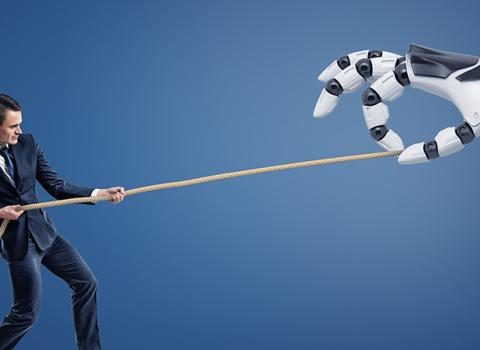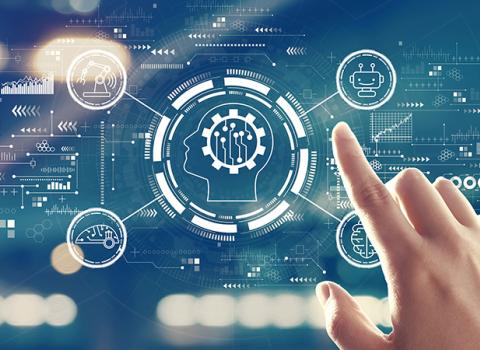A proposal to classify autonomous robots in Europe as "electronic persons" and oblige their owners to register them with a central agency and pay social security taxes is too fearful and burdensome, robotics companies argue.
The motion, laid out by the European Parliament's Committee on Legal Affairs in a report issued earlier this year, calls on the European Commission to consider, "that at least the most sophisticated autonomous robots could be established as having the status of electronic persons with specific rights and obligations".
While noting that annual patent filings for robotics technology have tripled over the last decade, MEPs express unease in the report about robotics and artificial intelligence (AI) taking more and more jobs from humans, raising concerns about the future of employment and the viability of pension pots.
However such radical forecasts are being rejected by robot manufacturers, who say politicians risk unduly impeding a promising new field.
“It’s trying to find solutions for problems that don’t exist yet,” said Susanne Bieller, project manager with EUnited Robotics, a trade association. “You can’t really say what’s going to happen in 15 years’ time in this space.”
“I think they’re way ahead of themselves,” agrees Geoff Pegman, managing director of British robotics company R U Robots. “It’s going to be a long time before we see really sophisticated robots that can replicate human capabilities.”
The difficulty for policymakers starts with figuring out what a robot is.
The Parliament motion covers everything from drones, self-driving cars, surgical and factory robots to AI-powered systems, such as virtual assistants like Alexa, Cortana, Siri and Google Now.
“When you start lumping robots in together like this, you get real definitional problems,” Pegman said.
It’s not as if we don’t already have rules for industrial robots, Bieller points out. “There are safety standards set out for these at the moment in the EU’s machinery directive,” she said.
Politicians also suggest registering autonomous robots with a newly-created EU Agency for Robotics and Artificial Intelligence.
Kaja Kallas, an Estonian member of the European Parliament’s Committee on Industry, Research and Energy, said she is against the idea.
“It’s not wise. We already have so many agencies – it only means more bureaucracy and hindering innovation,” she said.
Establishing a code of conduct for robotics engineers and users is a good idea however. “But it would be wrong for politicians to draw them up, they have to come from industry,” Kallas said.
Even if it did find enough support in Parliament, the report would be non-binding, as MEPs don’t have the power to propose legislation.
“Still, you never know which Commissioner’s desk it will land on,” said Bieller. “We have to take it seriously.”
Job killers?
Fears that robots will take some jobs away from humans are reasonable.
The Geneva-based World Economic Forum reported in January that technologies like AI and machine learning could mean the loss of more than 7 million jobs over the next several years.
Customer service and transportation are most in danger from automation in the not-too-distant future, according to a report released by market research company Forrester this week.
But robots’ defenders say automated workers will create as many jobs as they destroy.
Automated workers help companies cut costs, making them more productive. “More productivity means you need to employ more people in other parts of your business and so pay more taxes anyway,” said Bieller.
Rather than collecting additional social security money from robot owners, policymakers should consider how robots help grow the overall economy, said Marko Munih, head of Robolab at the University of Ljubljana in Slovenia.
“Use of any machine, from simple to complex, should be stimulated, without licences or [a] particular legal framework,” he said. “Higher GDP will elevate the quality of life of the whole of the EU, and that is what we want.”
As robots slowly gain more advanced decision-making abilities, it’s good that politicians are beginning to think through the knotty issues, said Bieller.
“But fears are a bit overcooked. The report literally likens today’s robots to Frankenstein's Monster,” she said.



 A unique international forum for public research organisations and companies to connect their external engagement with strategic interests around their R&D system.
A unique international forum for public research organisations and companies to connect their external engagement with strategic interests around their R&D system.